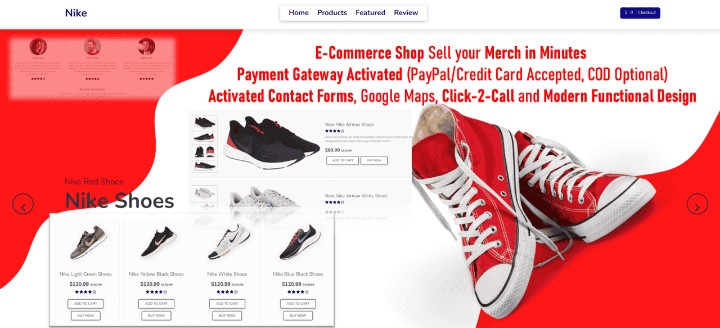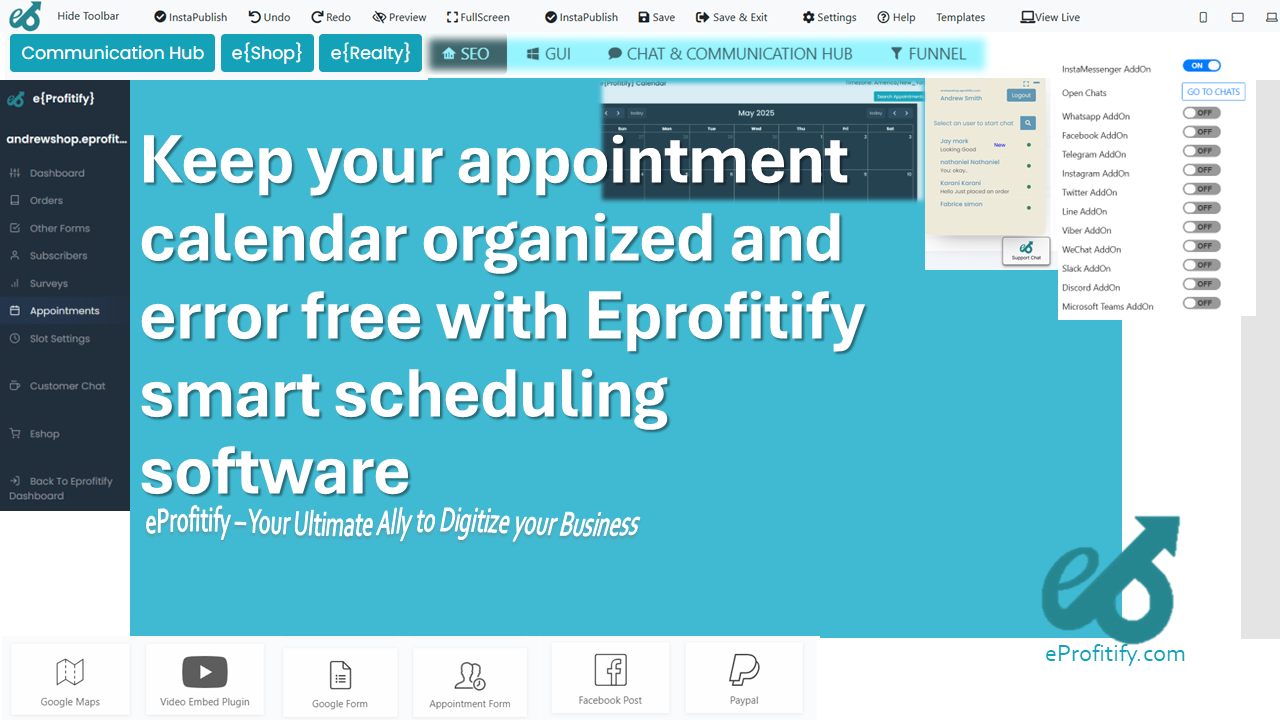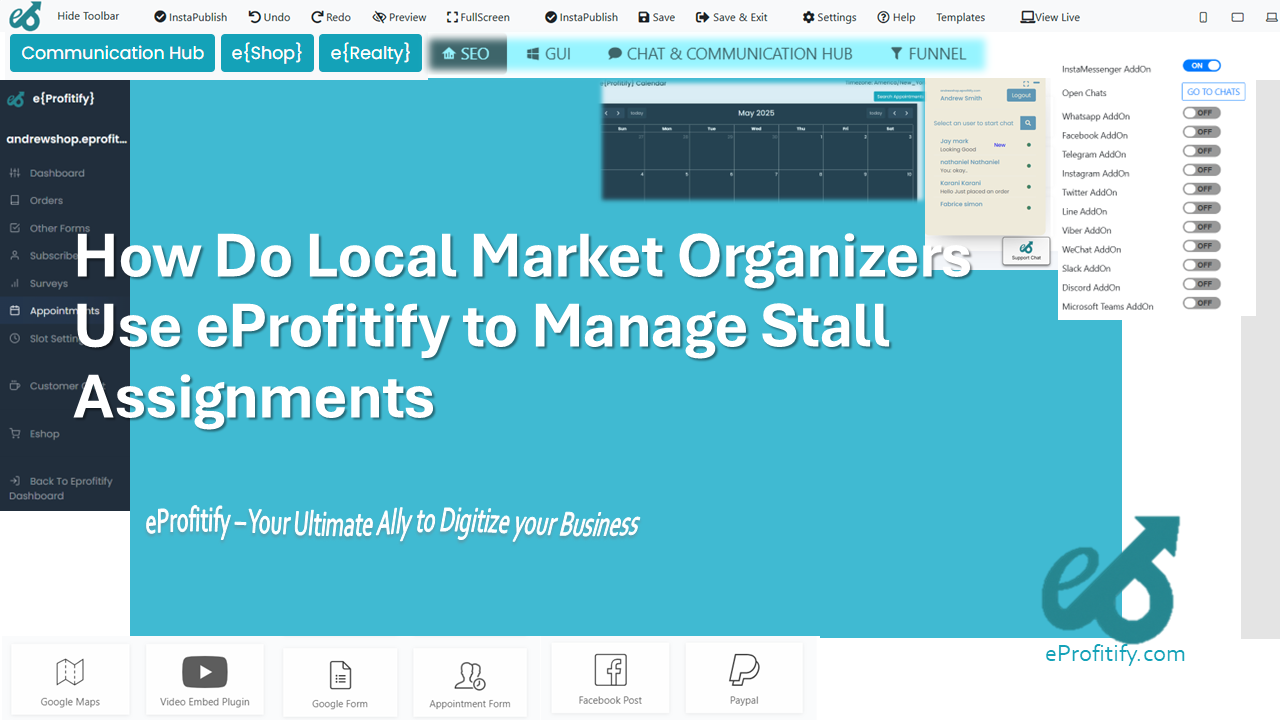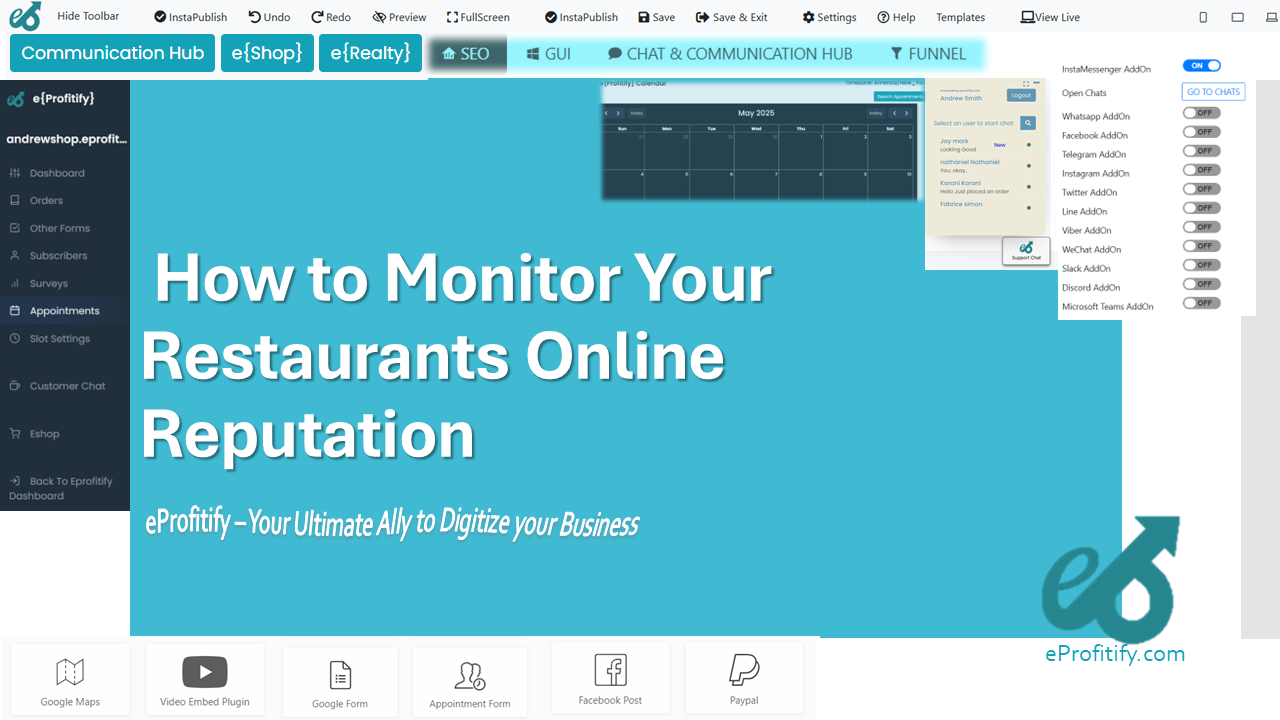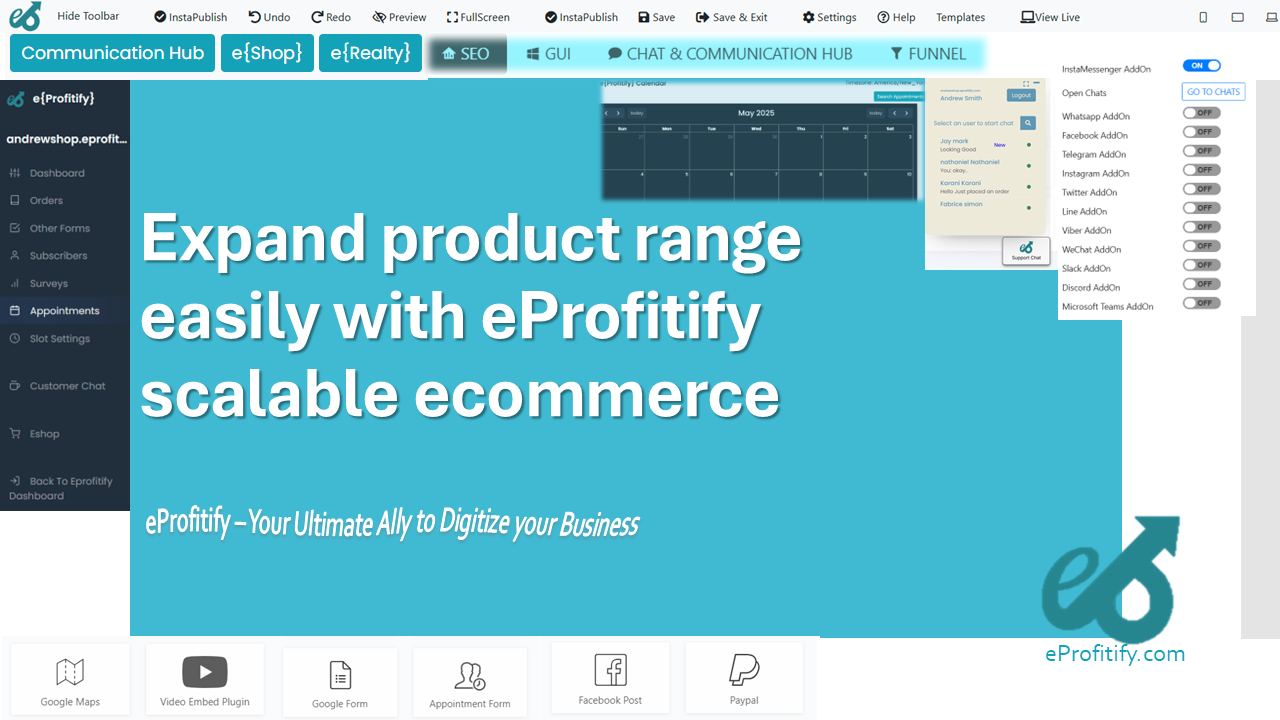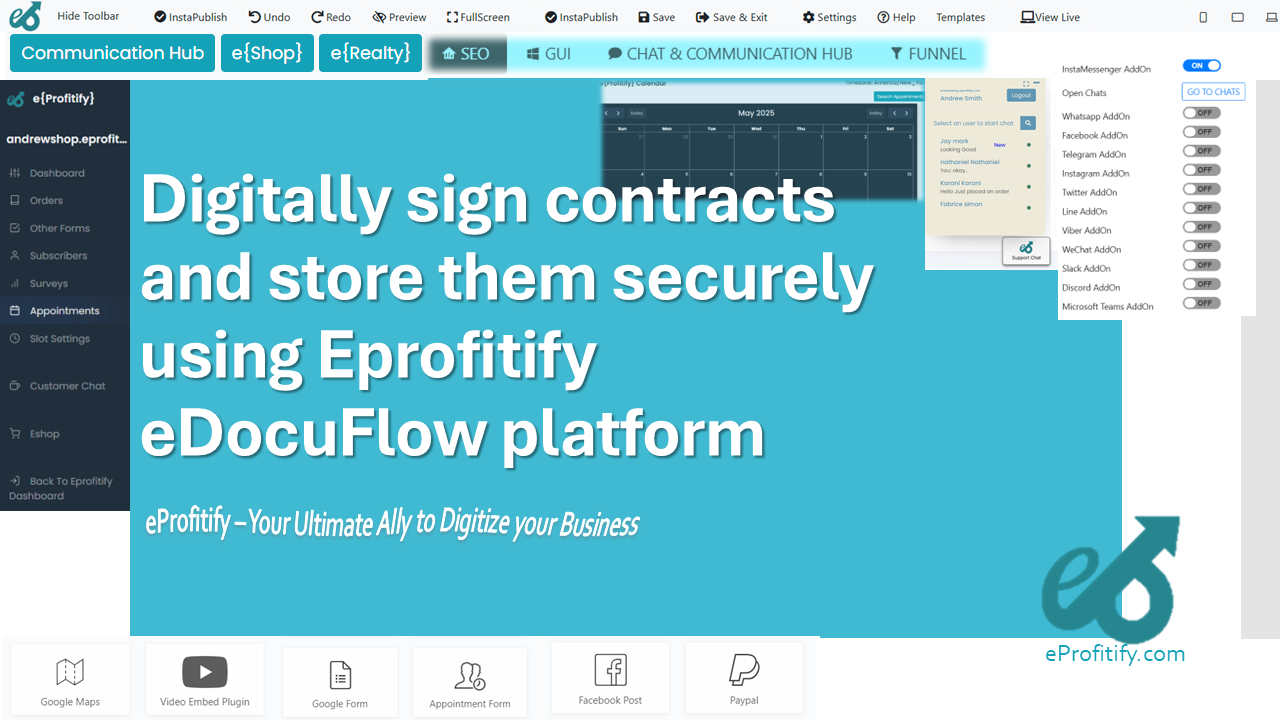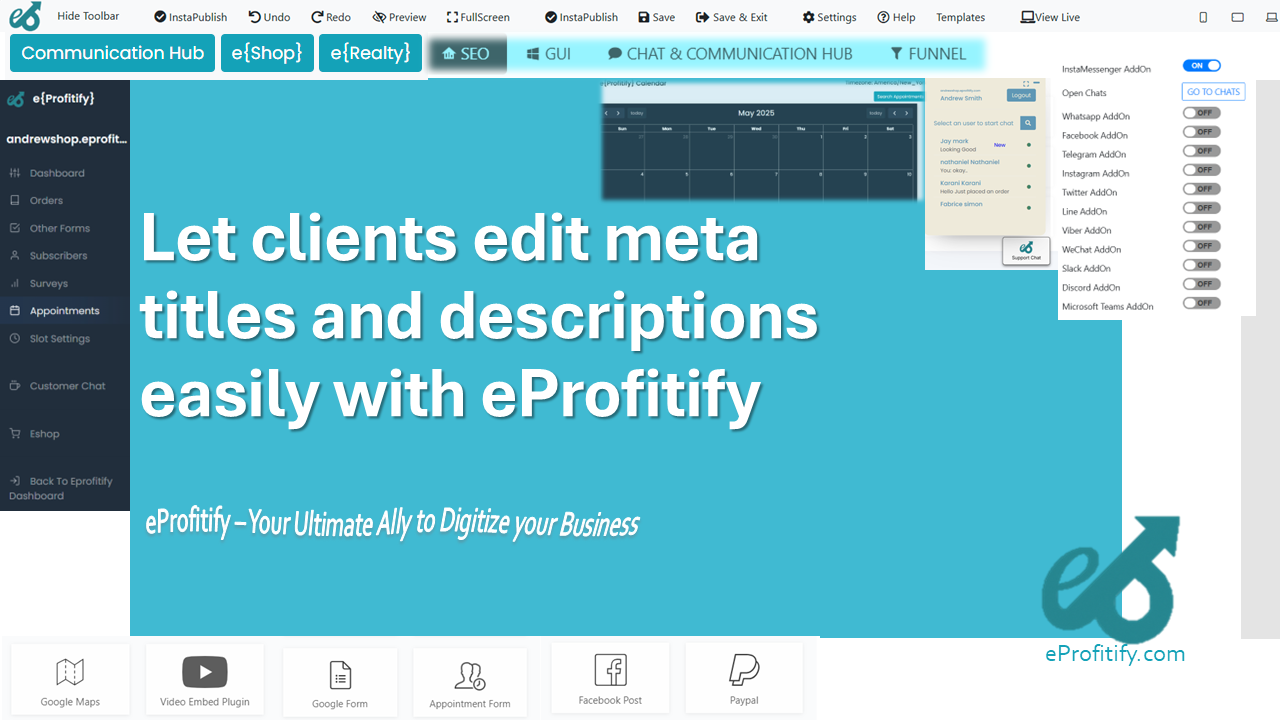How eDocuflow Helps in Managing Franchise Agreements
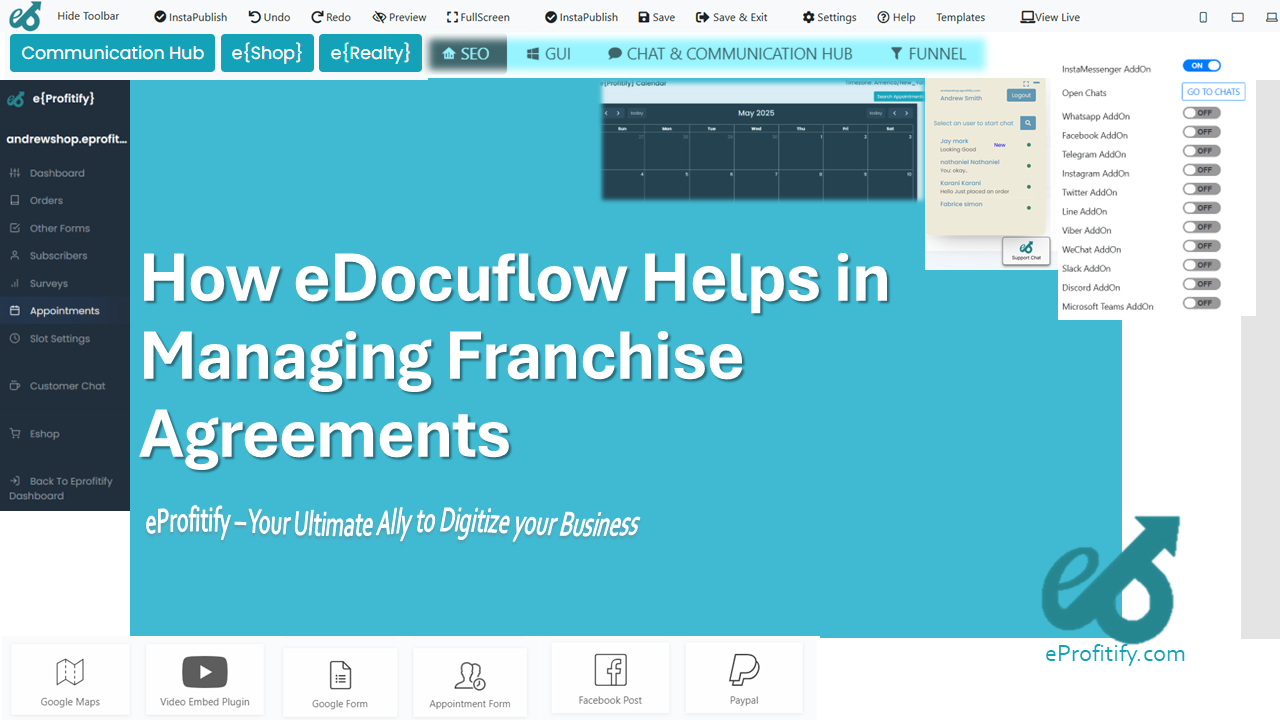
Schedule a LIVE Zoom call with an eProfitify Expert.
Managing franchise agreements is a complex task that involves coordinating legal, operational, and compliance requirements across multiple locations. Franchisors must ensure consistency in branding, service delivery, and contractual obligations while navigating the challenges of scalability and communication. Traditional methods of managing these agreements—relying on paper-based processes or fragmented digital systems—are prone to inefficiencies, errors, and compliance risks. This is where eDocuflow emerges as a transformative solution, streamlining franchise agreement management through automation, collaboration, and centralized oversight.
The Challenges of Franchise Agreement Management
Franchising is a rapidly growing industry, with global revenues projected to reach $558 billion by 2026 (IBISWorld). However, managing franchise networks comes with inherent challenges:
- Document Overload: A single franchise agreement can span dozens of pages, with clauses covering fees, territorial rights, and operational guidelines. For franchises with hundreds of locations, manual drafting, tracking, and updating agreements becomes unwieldy.
- Compliance Risks: Franchisors must adhere to federal and state regulations, such as the FTC’s Franchise Rule in the U.S., which mandates specific disclosure requirements. Non-compliance risks penalties or legal disputes.
- Version Control: Outdated templates or conflicting agreement terms across franchises can lead to miscommunication and disputes.
- Inefficient Collaboration: Delays in approvals and communication gaps between legal teams, franchisees, and stakeholders slow down onboarding and renewals.
How eDocuflow Streamlines Franchise Agreements
1. Centralized Document Management
eDocuflow offers a cloud-based repository for storing, organizing, and accessing franchise agreements. It eliminates the chaos of scattered files by providing role-based access to stakeholders. For instance, franchisees can view their agreements, while legal teams edit templates. According to Gartner, 43% of legal professionals cite manual document handling as a primary source of errors—a risk eDocuflow mitigates through automation.
2. Template Automation and Customization
The platform allows franchisors to create standardized agreement templates with dynamic fields for variables like location-specific terms or fee structures. When onboarding a new franchisee, the system auto-populates templates, reducing drafting time by up to 70% (Aberdeen Group). Updates to compliance requirements or brand standards are propagated instantly across all active agreements.
3. Workflow Automation for Approvals
eDocuflow’s workflow engine automates approval processes. For example, when a franchisee submits a signed agreement, the system routes it to legal, finance, and operational teams for sequential reviews. This reduces turnaround time from weeks to days. Companies using contract lifecycle management (CLM) tools like eDocuflow report a 50% reduction in agreement processing time.
4. Compliance Tracking and Audits
The platform monitors deadlines for renewals, disclosures, and regulatory filings, sending automated alerts to avoid lapses. Audit trails document every change, ensuring transparency. Deloitte estimates that automation cuts compliance audit preparation time by 35%.
5. Enhanced Collaboration
Built-in comment threads and e-signature integrations enable real-time collaboration between franchisors and franchisees. This eliminates bottlenecks caused by email chains or in-person meetings, accelerating onboarding.
Integrating eprofitify: A Holistic Franchise Management Ecosystem
While eDocuflow excels in agreement management, eprofitify complements it by addressing broader operational needs. As a leading website publishing and management tool, eprofitify offers:
- Instant Messaging: Facilitates real-time communication between franchisors and franchisees, reducing response times. A Statista study found 72% of customers prefer messaging over phone calls for quick queries.
- Appointment Management: Franchises in service industries (e.g., fitness or healthcare) use eprofitify’s scheduling system to sync bookings across locations, minimizing no-shows.
- Ecommerce Integration: Franchises can manage online sales, inventory, and promotions through a unified dashboard. Businesses using integrated ecommerce tools see a 30% increase in cross-channel revenue (McKinsey).
- CRM Capabilities: eprofitify’s CRM tracks customer interactions, enabling personalized marketing. Salesforce reports that CRM adoption boosts sales productivity by 29%.
- Analytics and Reporting: Franchisors gain insights into location performance, customer behavior, and revenue trends to inform strategic decisions.
Together, eDocuflow and eprofitify create a seamless ecosystem for franchise management. For example, a franchisor can draft an agreement in eDocuflow, onboard a franchisee via eprofitify’s CRM, and track compliance deadlines while monitoring sales performance through analytics.
The Impact on Franchise Growth
The synergy between eDocuflow and eprofitify drives scalability. Franchisors using such tools onboard 40% faster than competitors relying on manual processes (Forbes). Additionally, automated compliance reduces legal costs by 22%, according to PwC. For franchisees, intuitive platforms improve operational efficiency, allowing them to focus on growth rather than administrative tasks.
Conclusion
eDocuflow revolutionizes franchise agreement management by replacing error-prone manual processes with automated workflows, centralized control, and robust compliance tools. When paired with eprofitify’s multifaceted platform—equipped with CRM, ecommerce, and communication tools—franchisors gain a competitive edge. As the industry grows, leveraging these technologies will be essential for sustaining compliance, efficiency, and scalability in a dynamic market.


